Samsung Galaxy Z Fold 5 vs OnePlus Open: Hold some, fold some
We may earn a commission if you make a purchase from the links on this page.

Intro
Samsung's latest foldable phone, the Galaxy Z Fold 5, is finally here. The device is imbued with the hopes of establishing an even stronger foothold on the foldable market that Samsung helped kickstart a few years back. Perfecting the formula with some surgically implemented enhancements, the Galaxy Z Fold 5 is a culmination of Samsung's multi-year advances on the scene.
However, once can't help but notice that has been little difference between the Galaxy Z Fold 5 and the previous two generations of Samsung's foldable phones. This apparent stagnation that has befallen Samsung has simultaneously allowed its biggest competitors to pick up steam and come up with their own foldables, which are in numerous instances much better devices.
Such is the case with the new OnePlus Open, which is easily a better foldable phone than the Galaxy Z Fold 5 in all areas that matter. With a better camera, better battery life, and better design, not to mention the slightly more affordable pricing, the latest OnePlus entrant is surely a device to consider if you're interested in a foldable phone.
Overall, we feel that the OnePlus One is definitely the better foldable one, and it's the one we recommend getting.
OnePlus Open vs Galaxy Z Fold 5 expectations:
- 7.8-inch vs 7.6-inch internal display
- 6.3-inch LTPO 3.0 vs 6.2-inch LTPS cover display
- 16GB vs 12GB RAM
- 48MP+48MP+64MP vs 50MP+10MP+12MP main camera setups
- Punch hole 20MP internal vs Under-display 4MP internal selfie
- 4,805mAh vs 4,400mAh battery
- 67W vs 25W wired charging
- No stylus vs stylus support
Table of Contents:
Design and Size
OnePlus has created the better foldable phone
In terms of design, the differences between these two foldables are pretty big. The OnePlus One is the wider and shorter phone, which makes its cover screen more usable, while the longer but narrower Galaxy Z Fold 5 is slightly easier to use with a single hand.
The OnePlus Open is said to have a 7.8-inch internal screen, 0.2-inch larger display than the inner screen on the Galaxy Z Fold 5. Although this might not sound like a really big difference, it actually is, as the OnePlus Open provides much more screen real estate.
And while the Galaxy Z Fold 5 features an improved hinge that allows for a zero gap between the panels in the phones folded state, which was a big problem with previous Folds. It is still plagued by the unsightly display crease. Aside from being easy to feel when you run your finger through the display, it's also the first thing that greets you visually when you open the Samsung phone.
At the same time, the OnePlus Open doesn't have such an issue. You can make out where the display is supposed to fold inwards, but there's no rift between the two sides of the display, which surely provides a better experience.
The Galaxy Z Fold 5 is an IPX8-rated device, which essentially means you can dunk it in freshwater for up to 30 minutes. There's no dust resistance, so protect your gadget accordingly. Unfortunately, one of the few issues with the OnePlus Open is that it's an IPX4-rated device, so it's not recommended to dunk this one in water and generally be
The Galaxy Z Fold 5 also comes with S Pen stylus support, although an S Pen is not found inside the box (you have to buy an . Still, nice to have the option for the useful accessory that's loved by so many.
Colors-wise, the Galaxy Z Fold 5 keeps things fresh and classy with Cream, Phantom Black, and Icy Blue, as well as the Samsung.com-exclusive Blue and Gray. OnePlus phones don't really have a good track record of being available in many and exciting colors, and the OnePlus Open isn't the one to change things.
You can have the phone in Voyager Black and Emerald Dusk. It's not only the colors that differ: the Voyager Black version is heavier and thicker as it employs a vegan leather back cover, whereas the Emerald Dusk one uses regular glass.
Display Differences
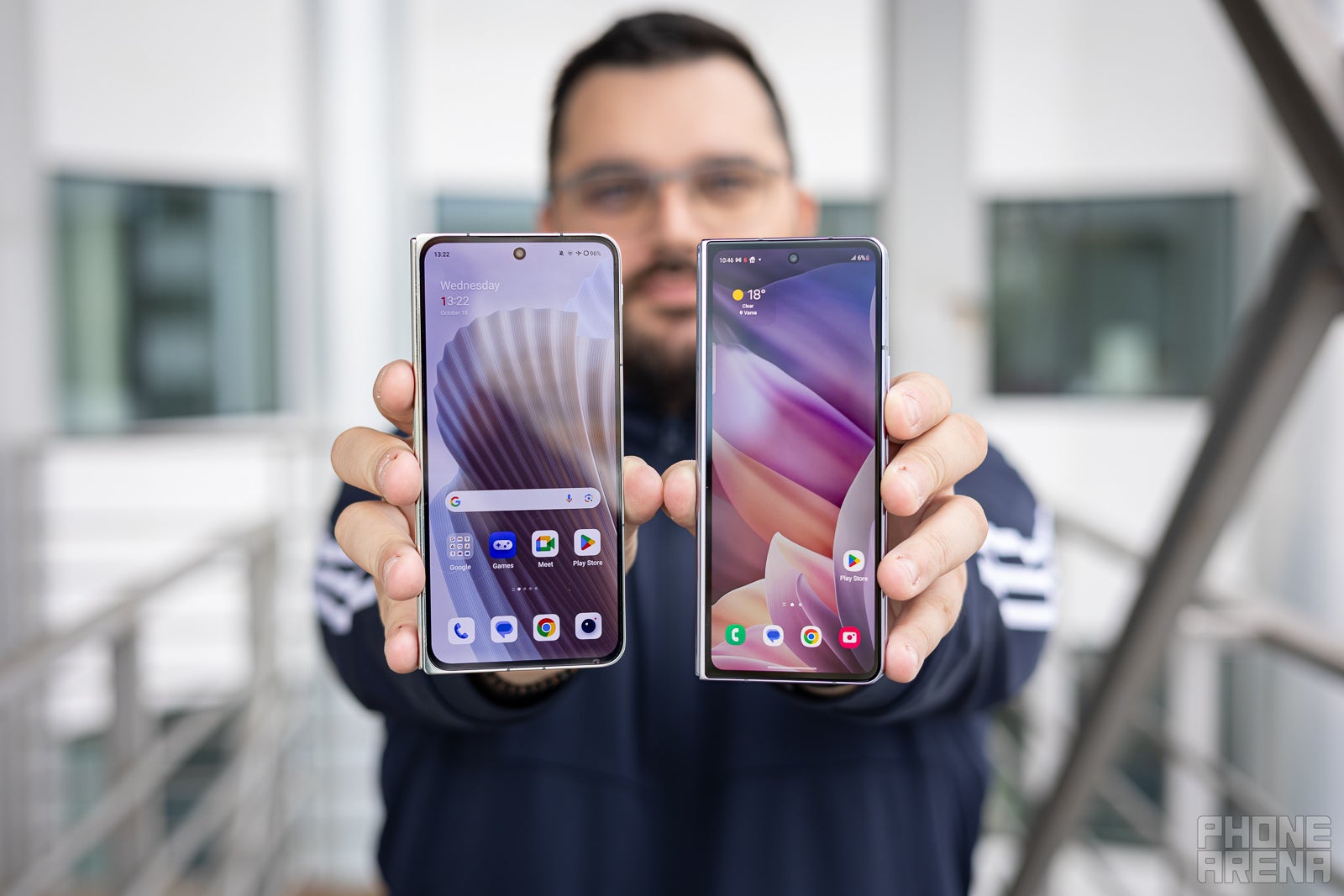
Image Credit - PhoneArena
The Galaxy Z Fold 5 comes forth with a 7.6-inch Dynamic AMOLED 2X internal display with a very smooth 1-120Hz refresh rate and a 6.2-inch outer screen of the same type with a slightly less impressive 48-120Hz refresh rate.
Like all Samsung AMOLEDs, the Galaxy Z Fold 5's displays is a joy to use and look at, with vivid colors, adequate brightness, and great viewing angles. As we mentioned, there's a visible display crease here, which isn't ideal.
The OnePlus Open comes with a 7.8-inch internal AMOLED LTPO 3.0 screen with a very smooth 1-120Hz refresh rate and very high brightness. It's also HDR-compliant and overall a joy to look at.
On the outside, the Galaxy Z Fold 5 boasts a 6.2-inch display, while the OnePlus Open employs a 6.3-inch one. Those metrics might be a bit deceiving, though, as the OnePlus cover screen is shorter but wider, it's much more akin to a regular candy bar phone.
The long and narrow cover display of the Galaxy Z Fold 5 provides less in terms of overall usability. The refresh rate difference is also there: while the Samsung foldable's external screen can only go down to 48Hz, the OnePlus Open can hit 10Hz at the minimum.
Both devices have fingerprint scanners embedded in the side-positioned power buttons and face unlock, though we can't really say that one of them is decidedly better than the other.
Performance and Software
Qualcomm Snapdragon for the win
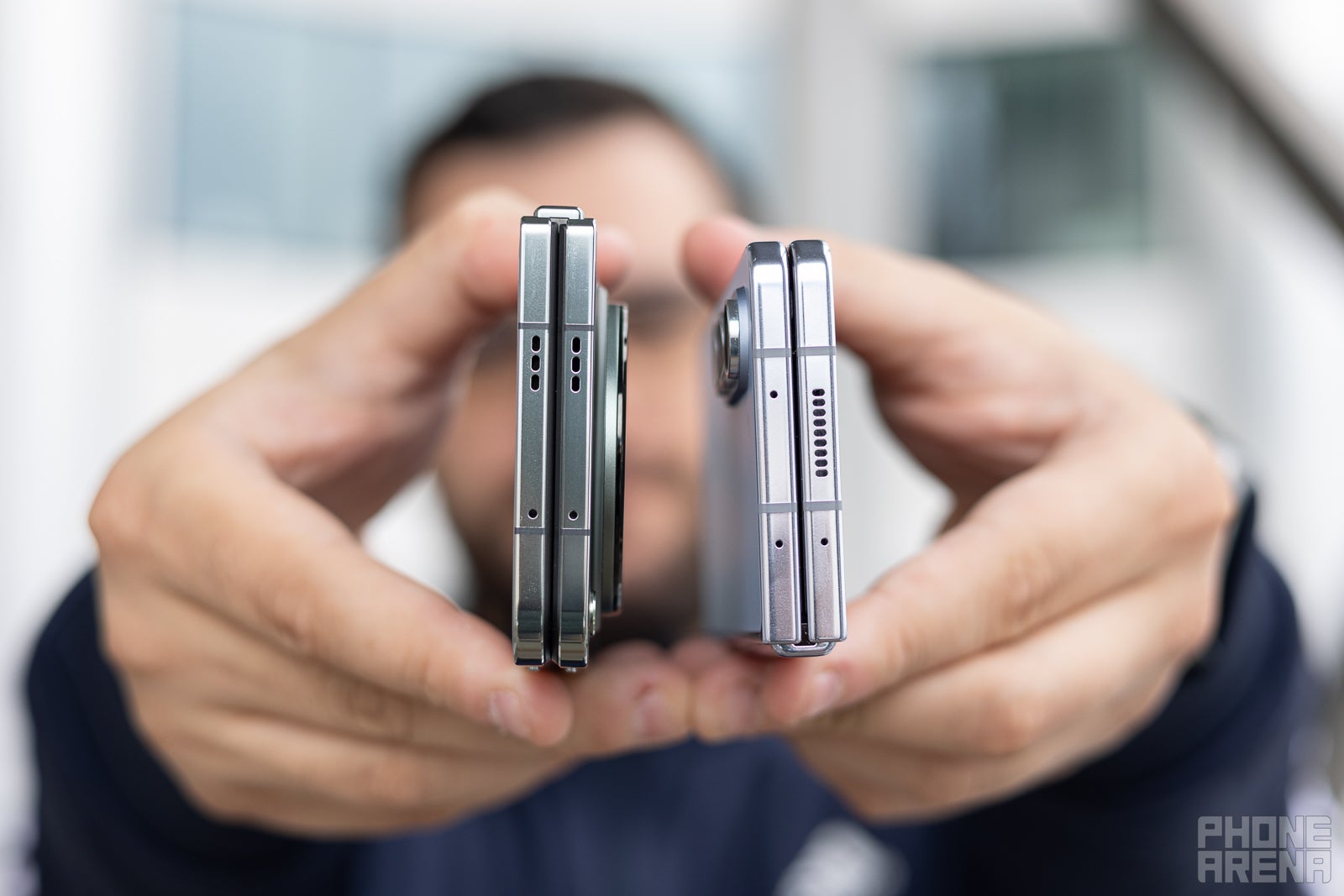
Image Credit - PhoneArena
The Galaxy Z Fold 5 comes with the 4nm Qualcomm Snapdragon 8 Gen 2 chip for Galaxy on deck. It's an improved and slightly faster version of the latest and most powerful Snapdragon chipset out there. The Galaxy Z Fold 5 chip can run at 3.32GHz at its best, a 0.12GHz improvement over the regular Snapdragon 8 Gen 2 chip.
Keeping the chipset cool is a larger vapor chamber in comparison with the Galaxy Z Fold 4. With exceptional performance, especially in the graphics department, as well as great efficiency, it's certainly a highlight on the Android hardware scene. In terms of storage, the Galaxy Z Fold 5 comes with 12GB of LPDDR5X RAM and 256GB, 512GB, and 1TB of UFS4.0 storage.
At the same time, the OnePlus Open also comes with the Snapdragon 8 Gen 2, as well as 16GB of LPDDR5X RAM and 512GB of fast UFS 4.0 storage, so plenty for multitaskers to work with.
In terms of raw performance, both devices perform admirably, with more than enough headway to get you through even the most demanding tasks. Thermal management is great on both. despite the cramped space inside.
Camera
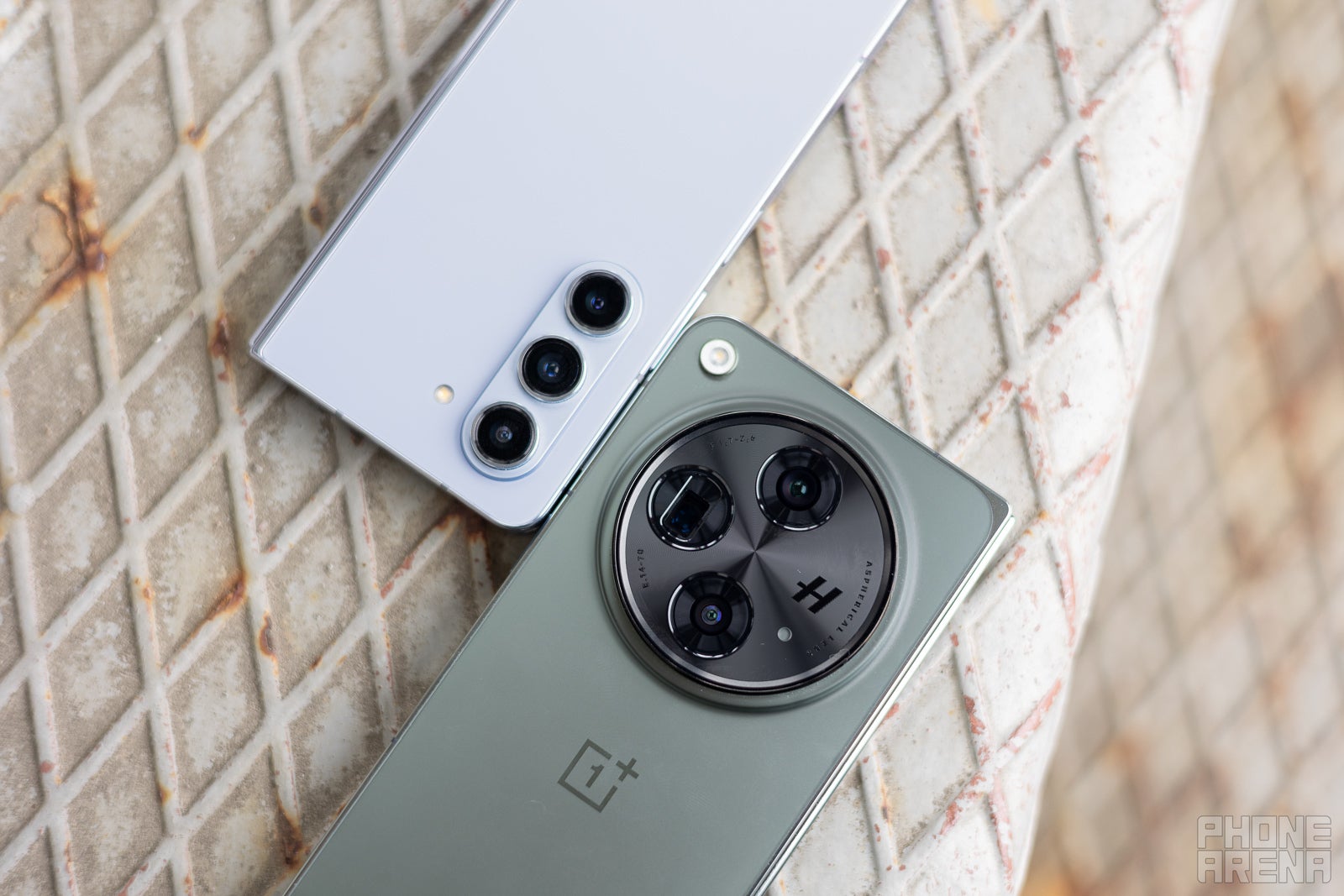
Image Credit - PhoneArena
The Galaxy Z Fold 5 doesn't score any specific improvements over its predecessor. It comes with a 50 MP main camera, a 10 MP zoom camera with 3X optical zoom, and a 12 MP ultra-wide camera. There are two selfie cameras on the Galaxy Z Fold 5 as well: a 10MP housed in a punch-hole on the outer screen, and the intriguing but low-res under-display selfie camera on the inside, measuring at 4MP. It delivers subpar image quality, so we don't recommend that you use that one.
The OnePlus Open comes along with a 48MP main camera utilizing a Sony Lytia-T808 stacked sensor, a 64MP camera with 3X optical zoom, but thanks to its high resolution, this one can also shoot at 6X. Additionally, we have a 48MP ultra-wide camera. Two selfies are available on the phone, an inner 20MP and an external 32MP selfie camera.
Let's get one thing straight: both devices take wonderful photos, and saying that one is better than the other involves a lot of nitpicking and honestly a subjective perspective.
Main Camera - Day
In bright daylight conditions, the OnePlus Open and the Galaxy Z Fold 5 both fare well. Colors and processing are a bit more excessive on the Galaxy Z Fold 5, while the OnePlus Open goes for a more natural style. Interestingly, even though better dynamics were touted as a strong point for the OnePlus device, the Galaxy Z Fold 5 seems to be doing a better job in extreme lighting conditions.
Main Camera - Low-light
Low-light performance is similar on both devices, but the OnePlus Open seems to have that tiny edge when it comes to overall dynamics and style. It maintains a nice balance between a natural and pleasingly rich look that gives it a slight edge over the Z Fold. 5.
Zoom Quality
The OnePlus Open beats the Galaxy Z Fold 5 when it comes to zoom quality, especially when it comes to low-light performance.
Ultra-wide Camera
Samsung's over-processing is very apparent in some situations, which leaves a sour taste in the mouth. The OnePlus Open goes for a much more natural look that simply is better.
Selfies
Battery Life and Charging
A great chance for OnePlus
The OnePlus Open comes with a sizeable 4,805mAh battery, definitely on the upper frontier when it comes to capacity. That's 400mAh more than the battery inside the Galaxy Z Fold 5.
What's the battery life like?
One area in which the Galaxy Z Fold 5 gets beaten completely is charging speed. Equipped with a 67W charging brick, the OnePlus Open charges superfast, from 0 to 100% in slightly over 40 minutes.
Specs Comparison
How do the OnePlus Open vs Galaxy Z Fold 5 specs measure up? Well, we only have an official confirmation on 50% of that comparison, so until the OnePlus Open goes official, we wouldn't know the full treat the table below with some
| OnePlus Open | Galaxy Z Fold 5 | |
|---|---|---|
| Size, weight | Unfolded: 153.4 x 143.1 x 5.8mm (Emerald Dusk) | 153.4 x 143.1 x 5.9mm (Voyager Black) Folded: 153.4 x 73.3 x 11.7mm (Emerald Dusk) | 153.4 x 73.3 x 11.9mm (Voyager Black) Weight: 245gr (Emerald Dusk) | 239gr (Voyager Black) | Unfolded: 154.9 x 129.9 x 6.1 mm Folded: 154.9 x 67.1 x 13.4 mm 253gr |
| Screen | Main screen: 7.82" AMOLED, 2440x2268, LTPO 3.0 (1-120Hz), sRGB, DCI-P3 Cover screen: 6.31" AMOLED, 2484x1116, LTPO 3.0 (1-120Hz), sRGB, DCI-P3 | Internal 7.6" Dynamic AMOLED 2X 1-120Hz External 6.2" Dynamic AMOLED 2X 48-120Hz |
| Processor | Qualcomm Snapdragon 8 Gen 2 | Qualcomm Snapdragon 8 Gen 2 for Galaxy |
| RAM, Storage | 16GB LPDDR5X RAM + 512GB storage | 12GB LPDDR5X RAM + 256GB storage 12GB LPDDR5X RAM + 512GB storage 12GB LPDDR5X RAM + 1TB storage |
| Cameras | Main: 48MP, f/1.7, Sony LYT-T808 1/1.43" sensor, 24mm equivalent, OIS, EIS, PDAF+CAF Ultra-wide: 48MP, f/2.2, Sony IMX581 1/2" sensor, 114-degree FOV, EIS, AF, Macro Telephoto: 64MP, f/2.6, OmniVision OV64B 1/.2" sensor, 3X optical zoom (70mm equivalent), 6X in-sensor crop, 120X maximum zoom, OIS, EIS, AF Internal selfie camera: 20MP, f/2.2, 1/4" sensor, fixed focus External selfie camera: 32MP, f/2.4, 1/3.14" sensor, fixed focus | 50MP main 12MP ultra 10MP 3X zoom 10MP external selfie 4MP under-display selfie |
| Battery | 4,805mAh | 4,400mAh |
| Charging | USB-C 67W wired | USB-C 25W wired 15W wireless charging Reverse wireless charging |
Summary
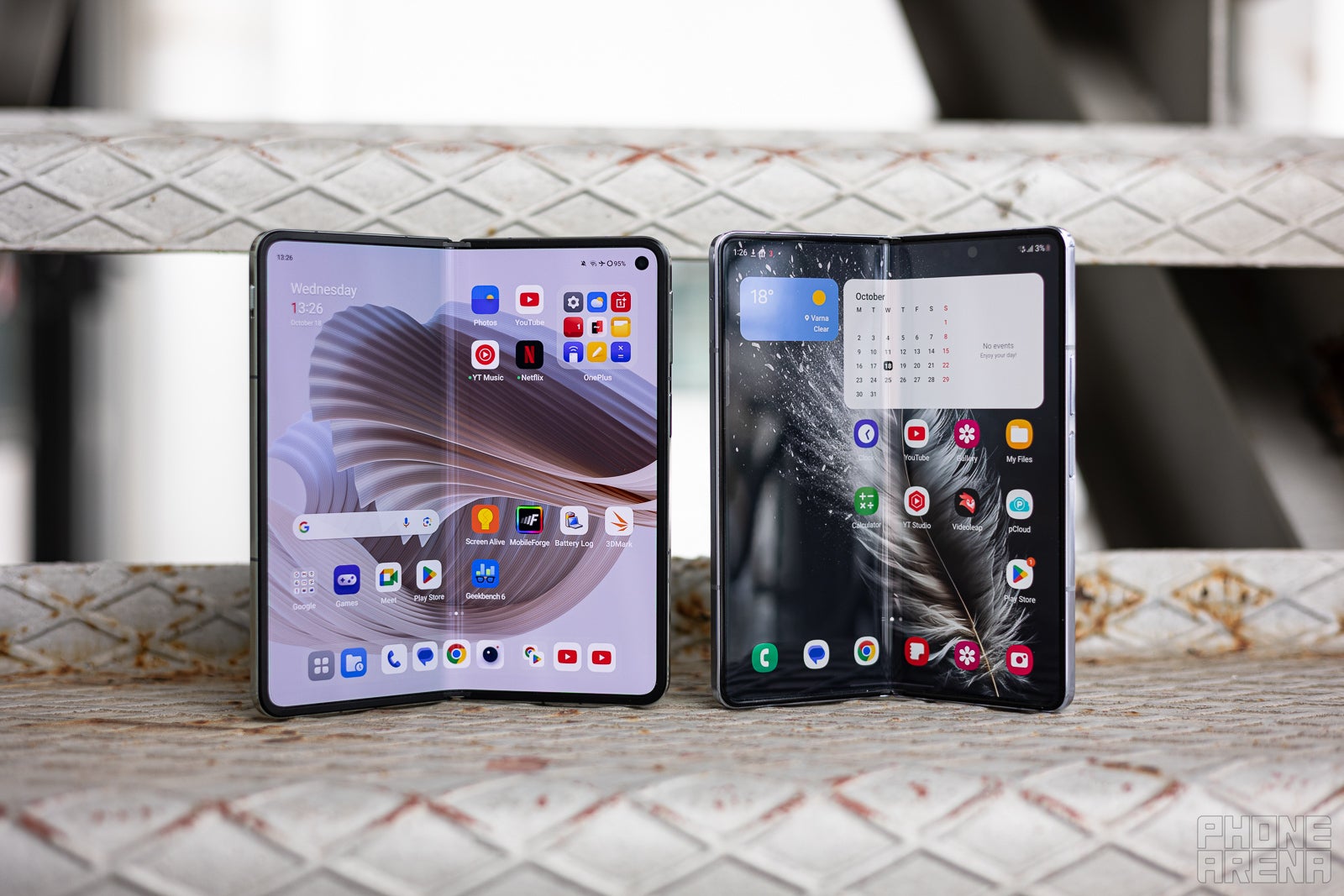
Image Credit - PhoneArena
While Samsung has been doing foldables for longer, it feels the other way around when the OnePlus Open is considered. The latter is more fleshed-out and overall a better phone, not to mention it's more affordable than Samsung's Galaxy Z Fold 5.
With a more versatile camera system, better design, and overall better value, it's the OnePlus Open that should be considered by potential foldable phone adopters.
With the Samsung Galaxy Z Fold 6 coming, as well as probably the OnePlus Open 2, this race won't be settled easily.
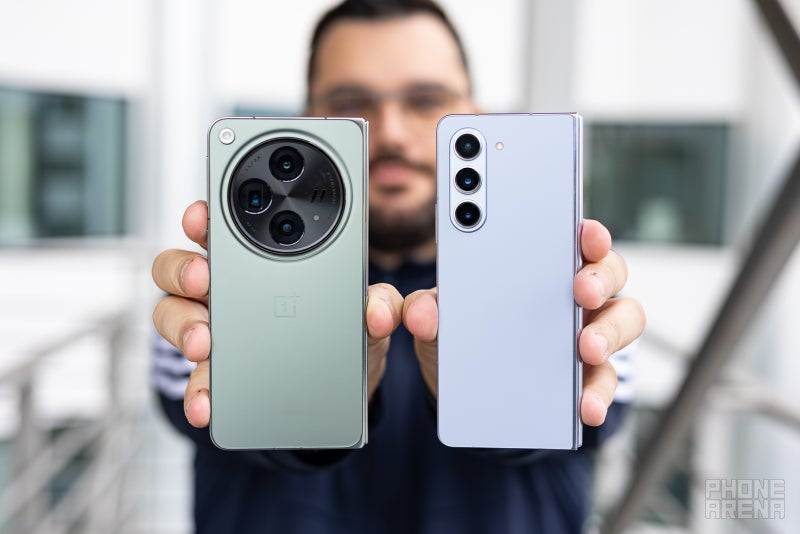

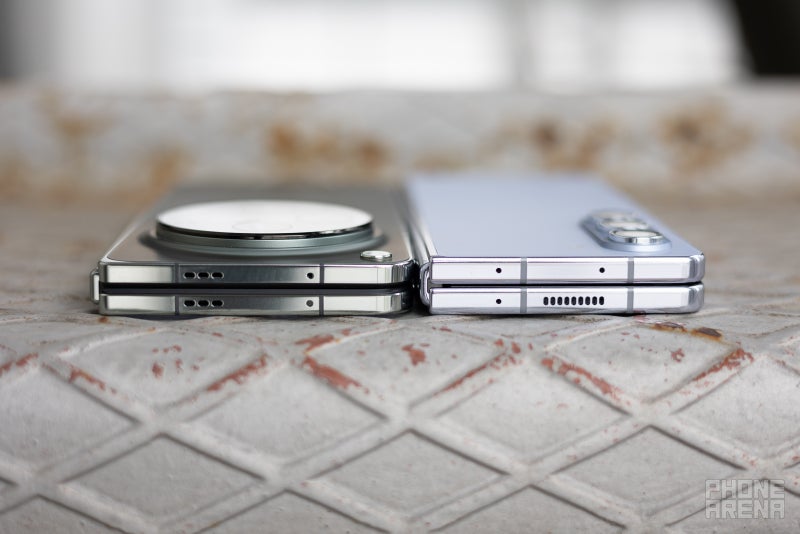
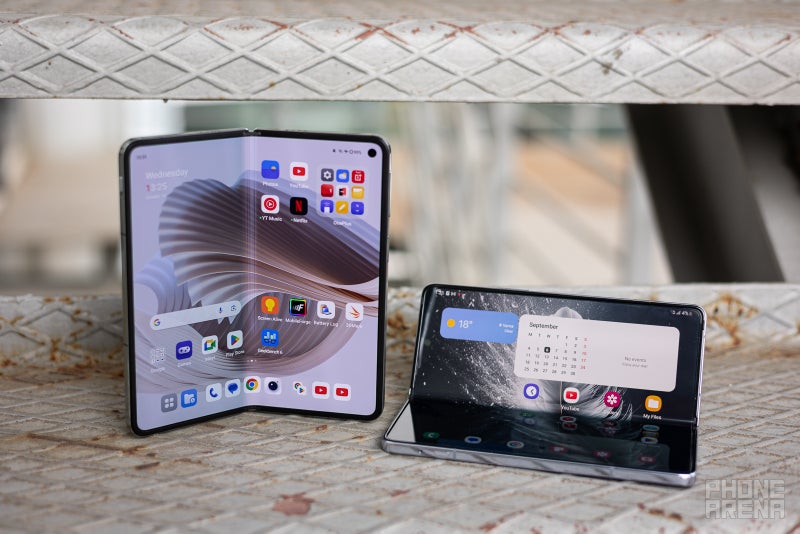
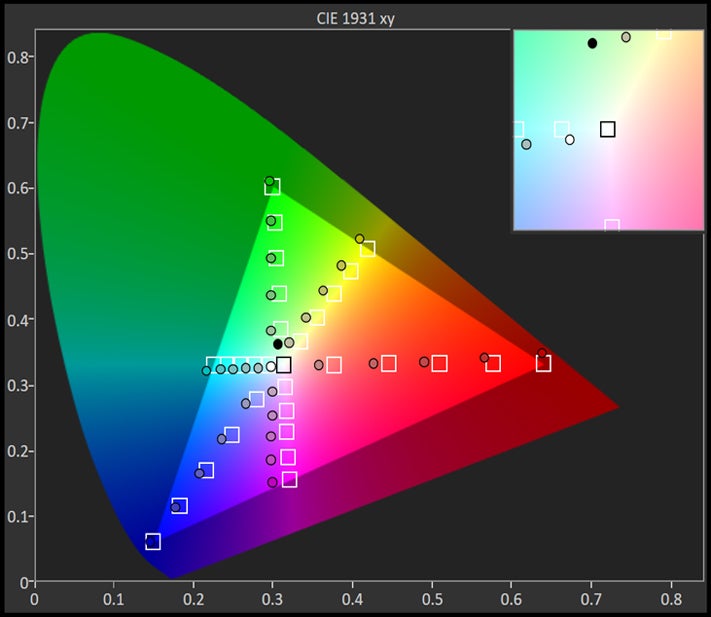









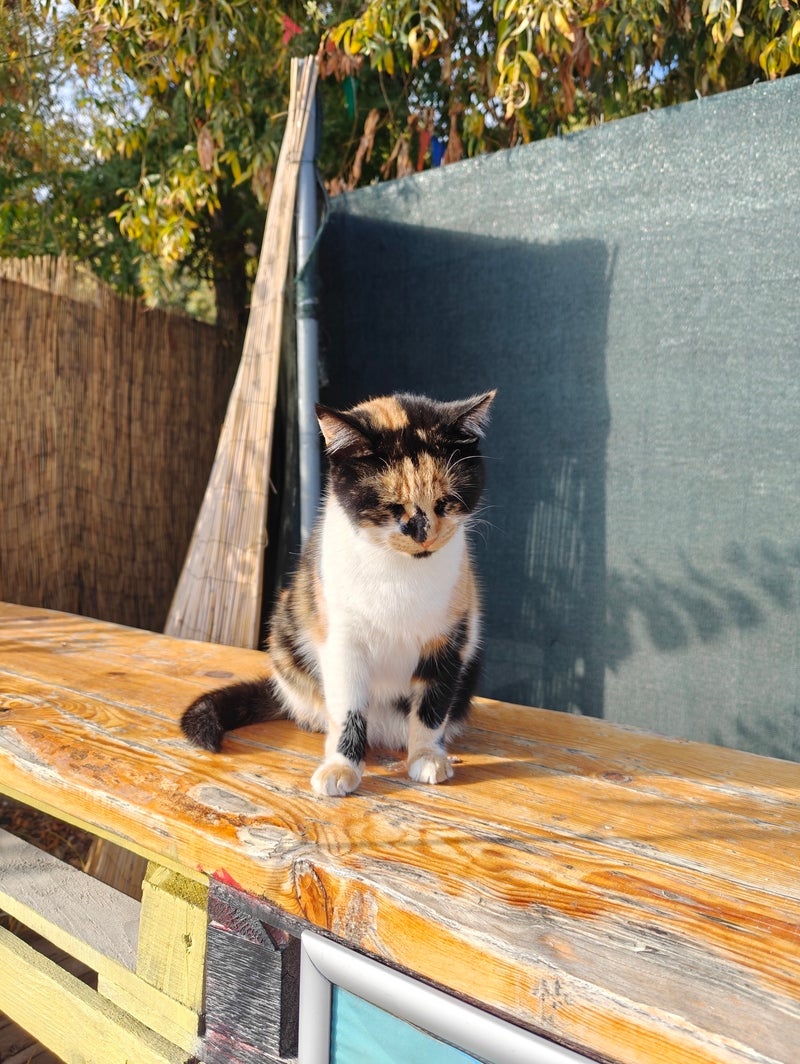
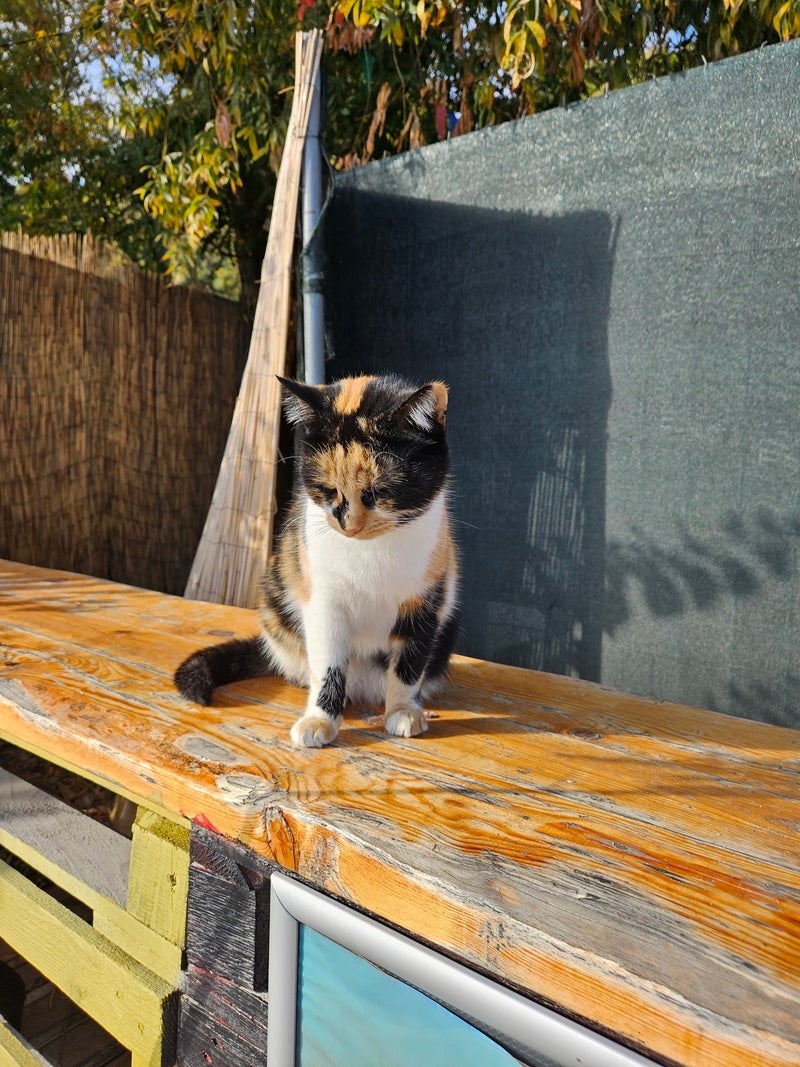
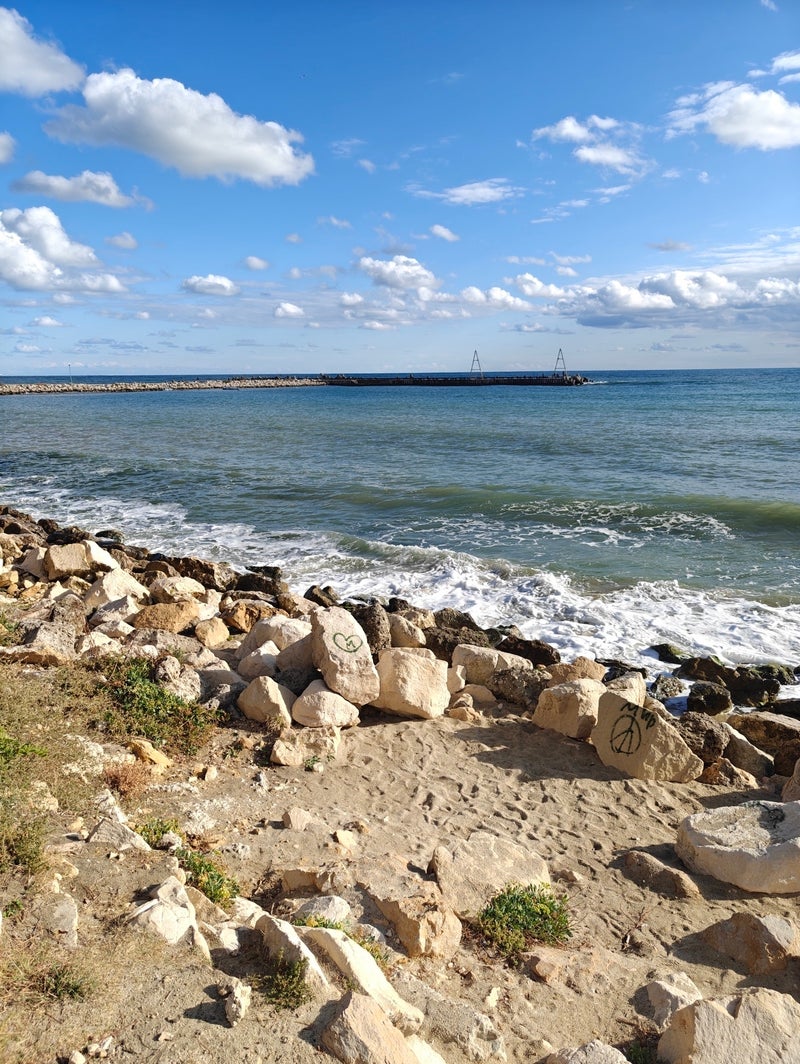
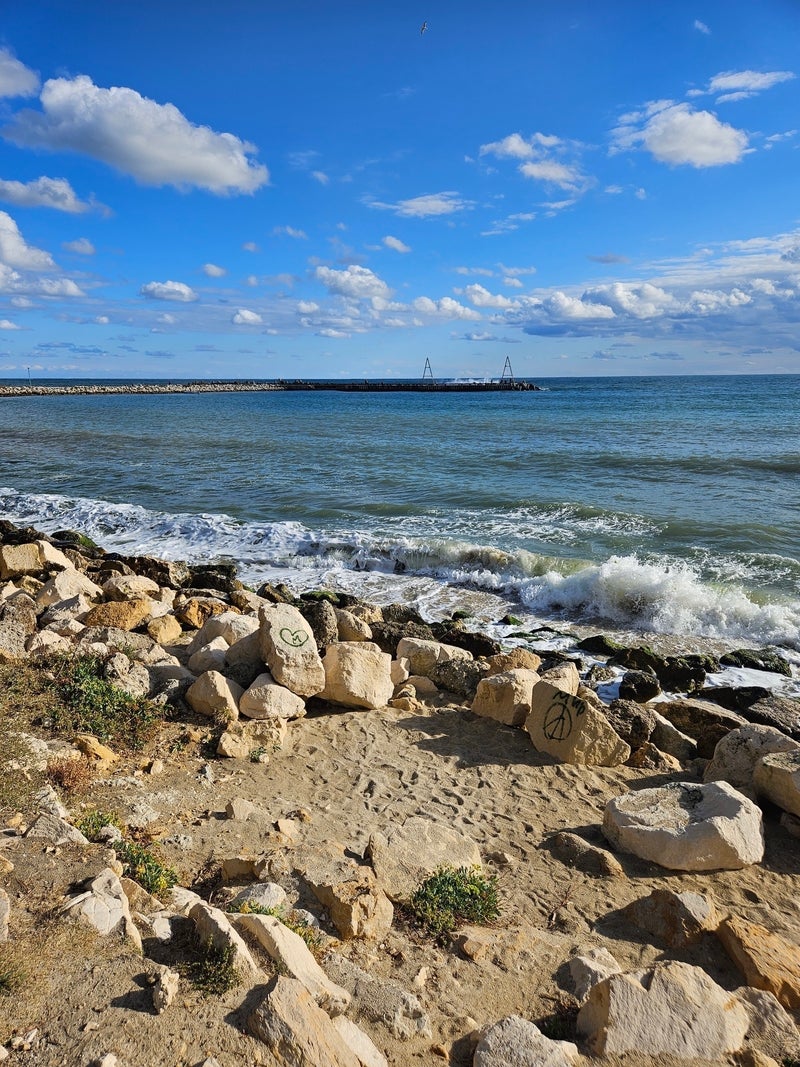





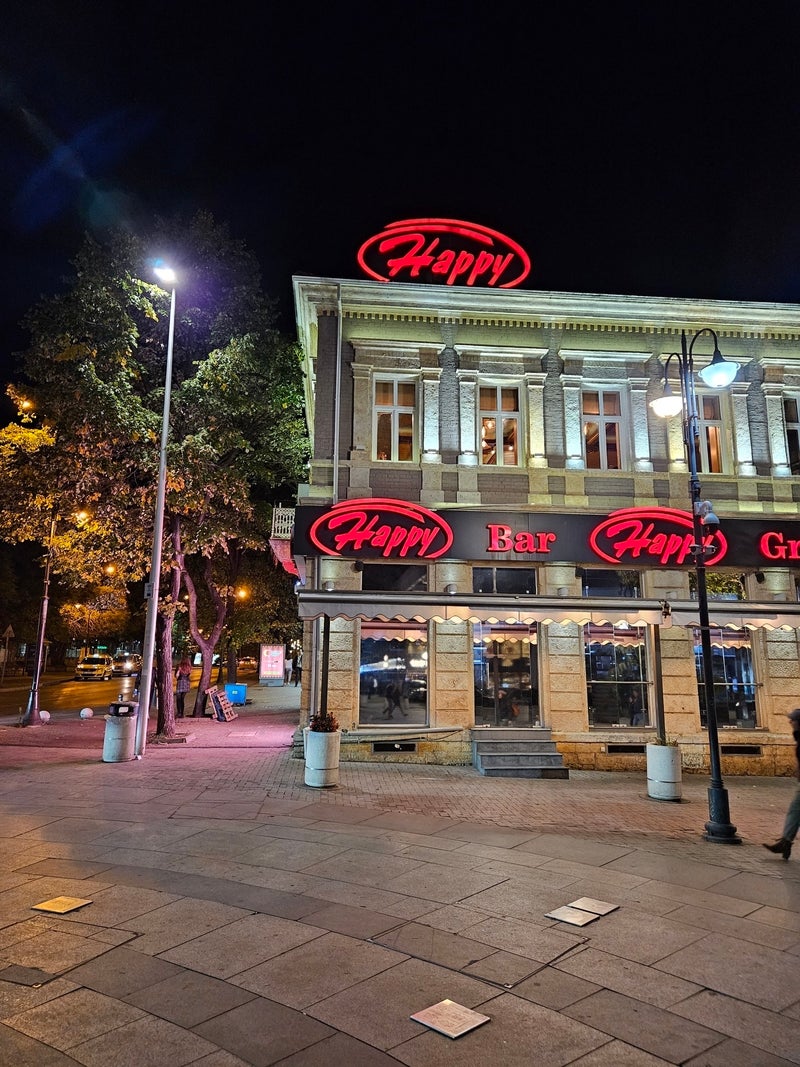





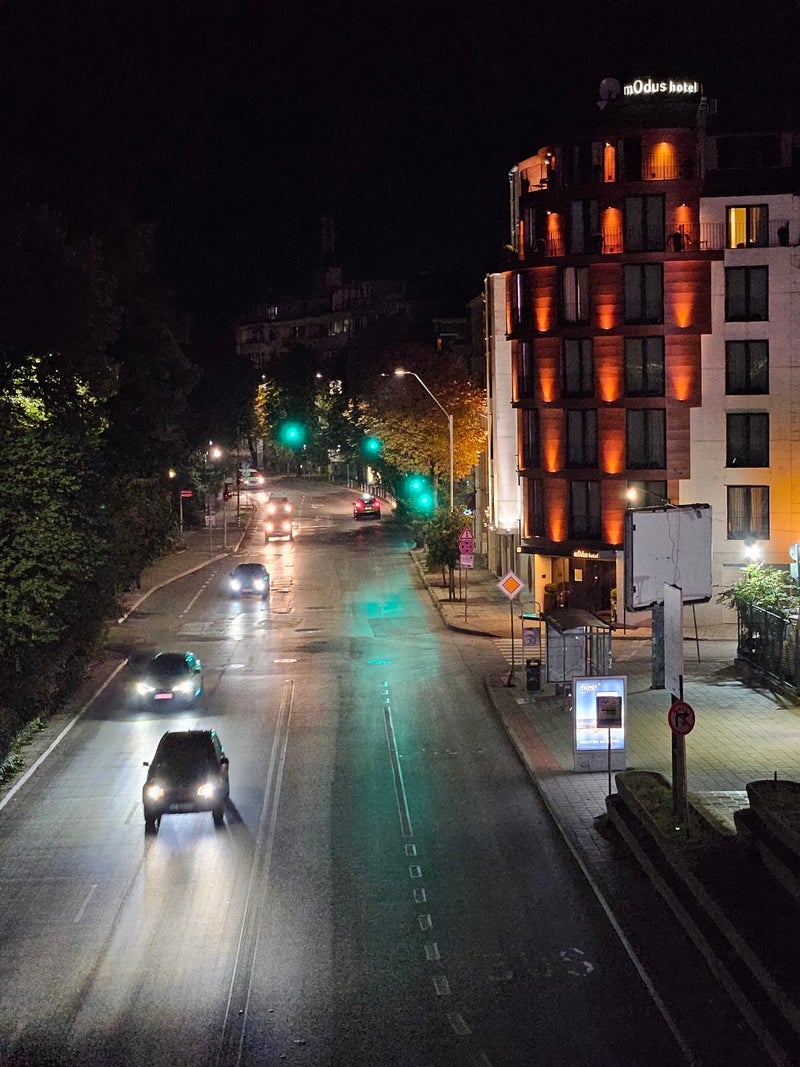
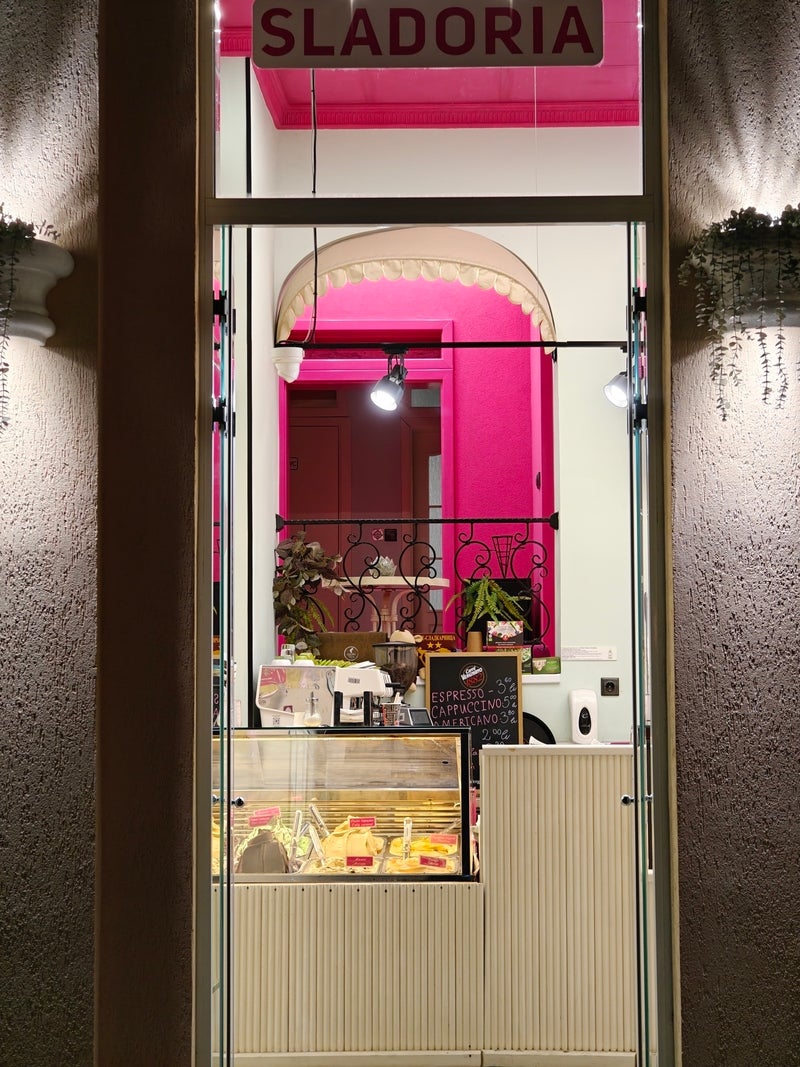
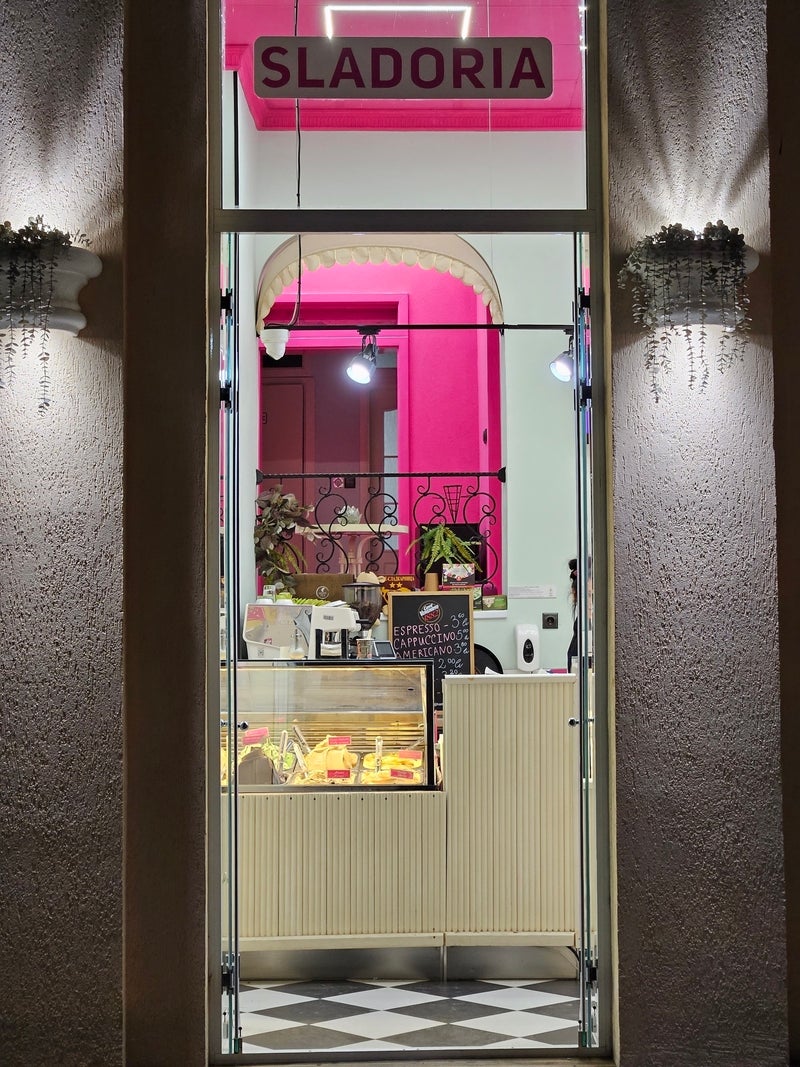



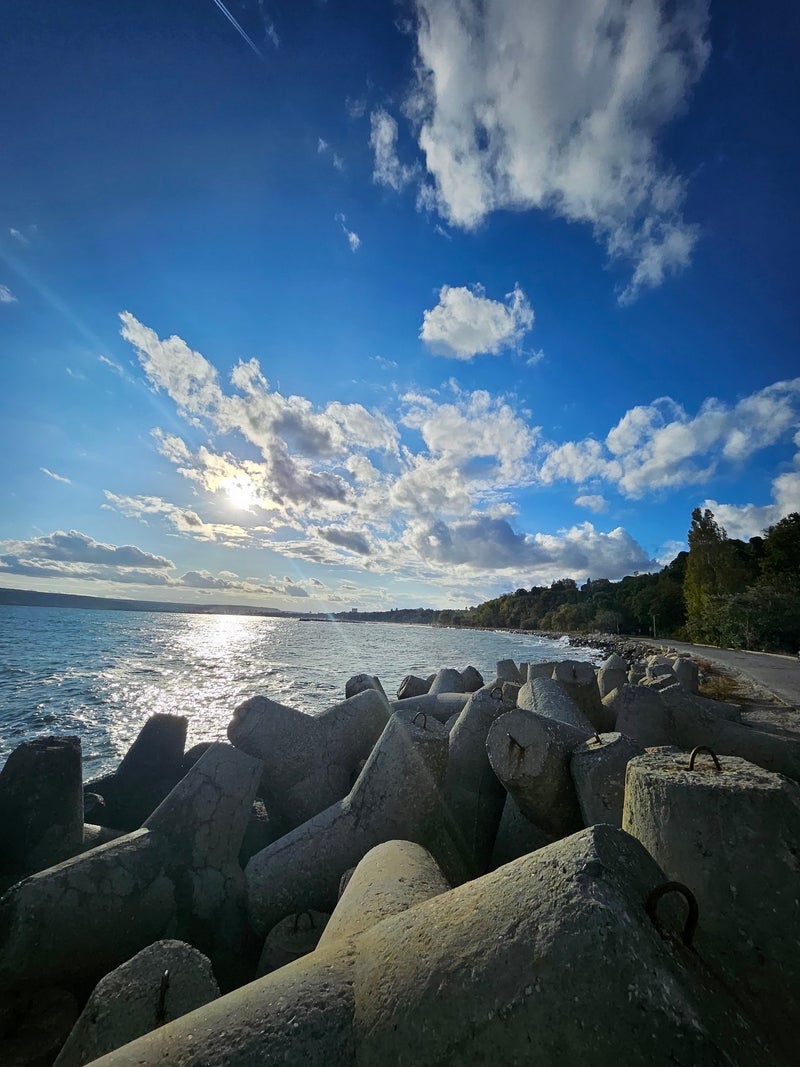

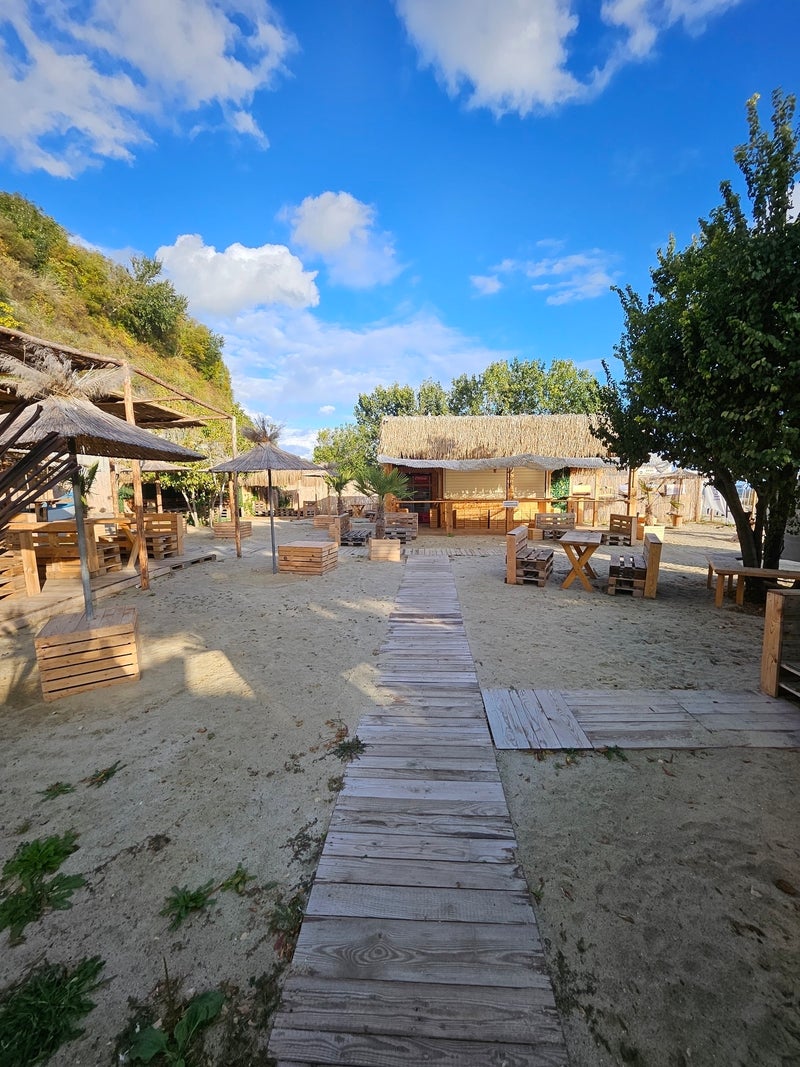









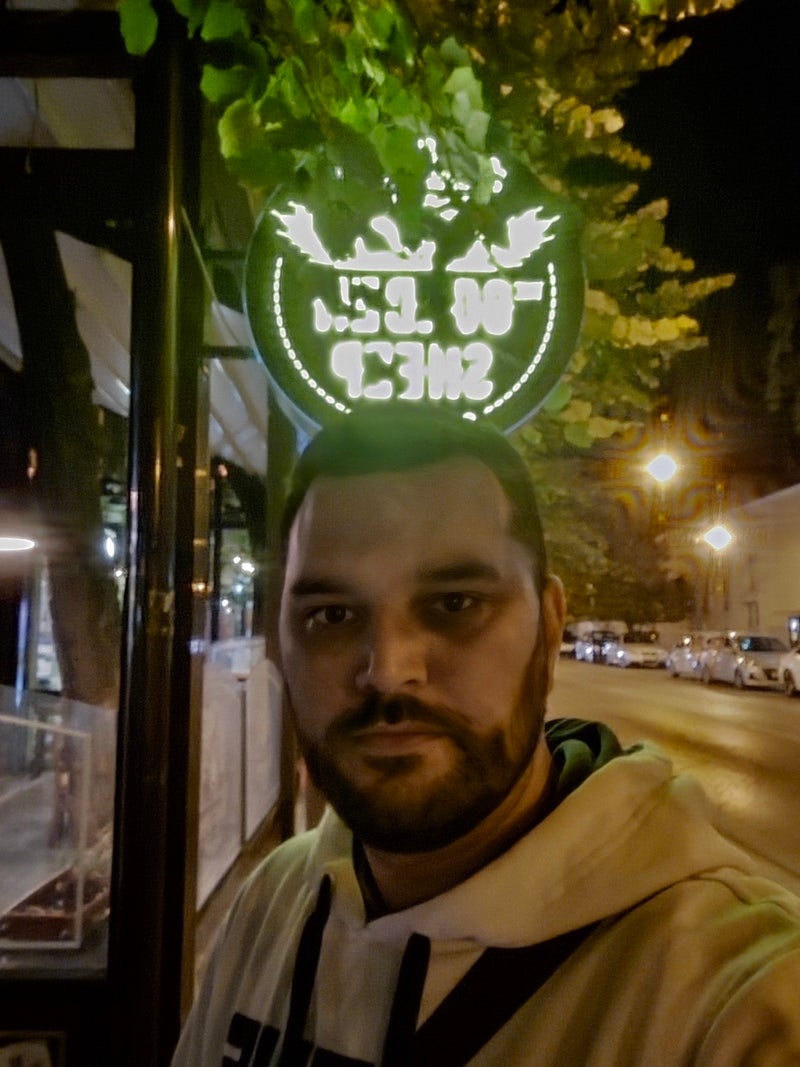







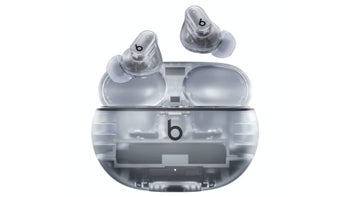
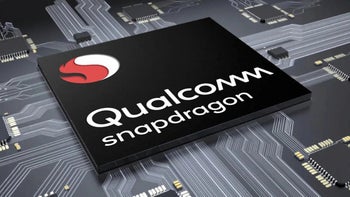

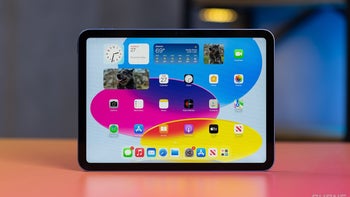
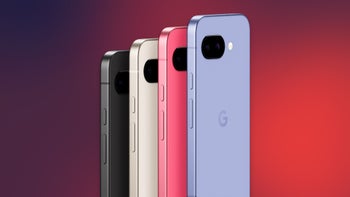
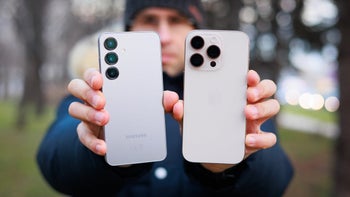






Things that are NOT allowed: